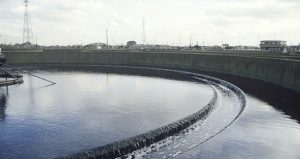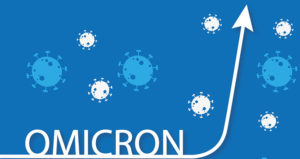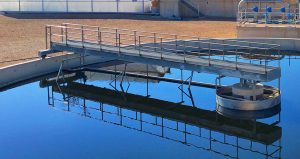Wastewater: COVID-19 detection part of the ‘new normal’
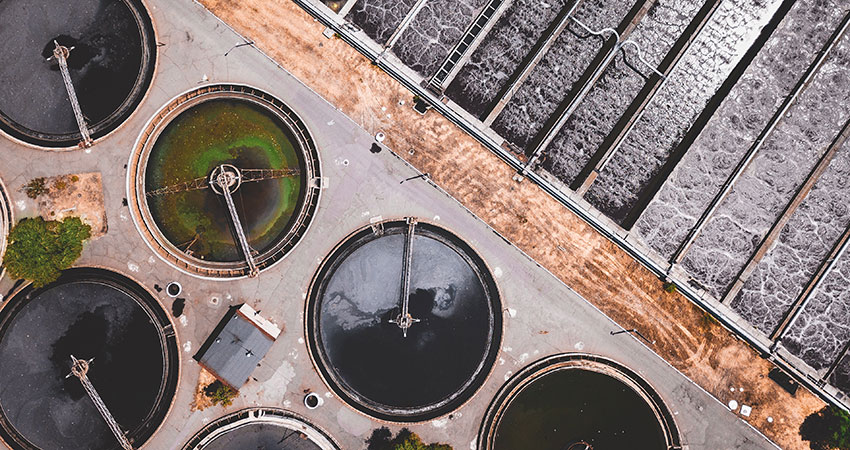
-
 Nancy Smith
Nancy Smith
Share article:
A growing number of countries are using wastewater surveillance to control the spread of Covid-19. In July, the Danish government allowed towns to monitor wastewater for the coronavirus. In the Netherlands, the authorities made budget available for wastewater surveillance on a daily basis. In England, a dedicated lab has been opened to process wastewater samples covering two-thirds of the population.
Just as EU countries start navigating the practicalities of a ‘new normal’ life, the Delta variant has started to take over. While it has been hypothesised that the link between high rates and high deaths has decreased in many states due to vaccinations, catching outbreaks before they get out of control is crucial. The water sector is at the front line of this fight for our post pandemic life through wastewater surveillance.
Detecting early outbreaks
The European Centre for Disease Control predicts that the Delta variant could represent up to 90 per cent of cases in the EU by the end of August. Nevertheless, the wastewater sector is crucial in detecting early outbreaks and, one year on from our first article on the topic, the European Commission has approved in March of this year a common approach.
From a state level, the Netherlands is a good example of where wastewater surveillance has been successful. The National Institute for Public Health and the Environment has developed a mapping system for predicting and investigating where outbreaks are occurring.
The image below shows the average number of virus particles in sewage per 100,000 inhabitants over the whole country. While this system is still in the testing stage this approach will contribute to the Commissions ambitions to implement a common approach to wastewater surveillance of COVID-19.
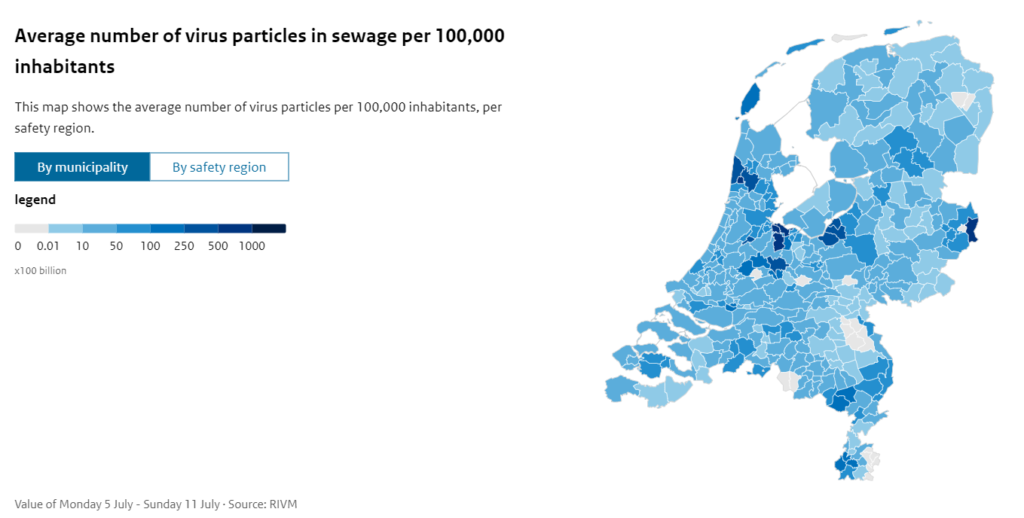
New rules
The European Commission asks Member States to put in place wastewater surveillance systems – ensuring relevant data is promptly provided to their health authorities. The European Commission is also looking into wastewater surveillance for more pathogens to be included in the revised Urban Wastewater Treatment Directive.
Common approach benifits
Poo is powerful and the European Commission have realised a common approach and methodology in wastewater detection in the treatment process is needed. This is to ensure data collection, sharing, and analysis is consistent and usable across Member States and to allow best practice examples to be exchanged and realised. The European Commission will provide financial assistance to support the development of other wastewater surveillance activities within the EU. Commissioner for Environment, Oceans and Fisheries Virginijus Sinkevičius said: “The use of wastewater surveillance can provide a cost effective, rapid and reliable source of information which would assist us in combatting the virus. It is also a good example of the multiple benefits of modern environmental infrastructure to our health and well-being.”





